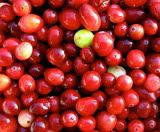 The safety of warfarin use can be compromised by many popular herbal and nonherbal supplements taken by individuals. Eight of the 10 most widely used supplements interact with warfarin, and many of these were associated with significant changes in the international normalized ratio (INR).
The safety of warfarin use can be compromised by many popular herbal and nonherbal supplements taken by individuals. Eight of the 10 most widely used supplements interact with warfarin, and many of these were associated with significant changes in the international normalized ratio (INR).
Of these, cranberry, garlic, ginkgo, and saw palmetto have been linked to increased rates of bleeding, whereas others have been shown to cause changes in prothrombin times, which would result in a need to alter warfarin doses.
In a study presented at the Heart Rhythm Society 2010, researchers evaluated the top 20 herbal and top 20 nonherbal supplements based on 2008 sales data on their potential to interact with warfarin. They searched numerous databases for relevant case reports and clinical trials documenting supplement-drug interaction, including changes in INR, bleeding risks, and thromboembolic events. 
Of the 40 most commonly used herbal and nonherbal supplements, more than 50% have a direct or indirect interaction with warfarin.
 Glucosamine, essential fatty acids, multiherb products, and primrose oil can increase prothrombin times, while coenzyme Q10, soy, melatonin, ginseng, and St John’s wort can decrease prothrombin times.
Glucosamine, essential fatty acids, multiherb products, and primrose oil can increase prothrombin times, while coenzyme Q10, soy, melatonin, ginseng, and St John’s wort can decrease prothrombin times.
Patients who are taking warfarin are strongly advised to disclose all their herbal supplements and non-herbal supplements to their doctors. This will avoid unnecessary bleeding and clotting risk.
New drug, such as Pradaxa, might able provide similar protection as warfarin, but without all these interactions when it become widely available in the future.
Readers are also advised to check the Herbs and Drug Interaction article for more information.
Please visit http://healthreason.com/ for more health related articles.
Source: Heart Rhythm Society 2010 Scientific Sessions, 2010






2 Responses to Which Herbal and Non-Herbal Supplements Interact with Warfarin?